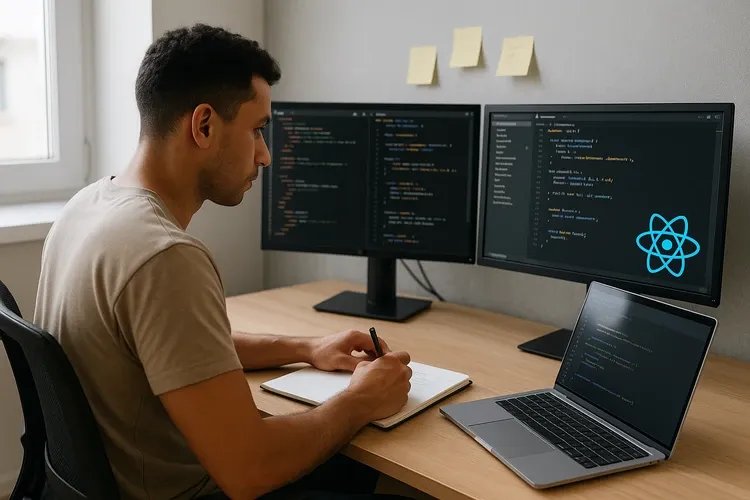How to Pass a Frontend Technical Interview in 30 Days
Updated on November 20, 2025 5 minutes read

Launching Soon: On-Demand, Self-Paced Courses. Learn more!
With a focused plan, you can get interview-ready in as little as 30 days. The key is consistent practice, project-based learning, and understanding core frontend concepts like HTML, CSS, JavaScript, and React.
Most interviews test your understanding of responsive design, DOM manipulation, JavaScript logic, and React fundamentals. Employers also look for problem-solving ability, clean communication, and awareness of accessibility and performance best practices.
Expect a mix of coding challenges, conceptual questions, and project discussions. You might be asked to build a small component, debug code, or explain how to optimize rendering in React or handle asynchronous data.
Include three to four projects that show different skills — like a responsive dashboard, a todo app, or an API-powered tool. Deploy your work online with clear documentation so recruiters can explore your code easily.
Yes, React is one of the most requested frontend frameworks in job listings. Even a basic understanding of components, props, and hooks can set you apart and make your portfolio much stronger.